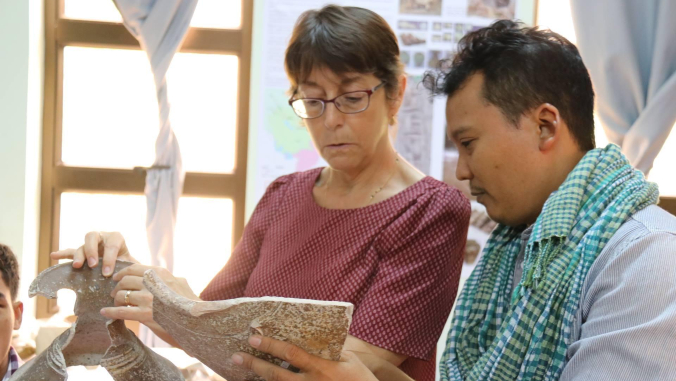
The Henry Luce Foundation recently awarded $1 million to the Center for Southeast Asian Studies (CSEAS) at the University of Hawaiʻi at Mānoa. Miriam Stark, director of CSEAS, will direct “LuceSEA Transitions: Environment, Society and Change” in partnership with the East-West Center (EWC) to explore socioeconomic and environmental shifts that are transforming Southeast Asian societies in a time of accelerated climate and environmental change.
With support from the Luce Foundation, the UH/EWC team will:
- Enhance collaboration and equality with Southeast Asia-based research partners by embedding training and collaboration opportunities into research and professional opportunities;
- Support Southeast Asia-based workshops to share information and help early career researchers develop professional skills;
- Develop and make available college-level Southeast Asia curricular resources on environmental issues and agrarian transitions as Open Educational Resources and for-credit online courses available using digital technology.
The project will create close mentorship programs that transcend institutional boundaries through joint fieldwork, professional training, conference participation and scholarly publication.
Nurturing collaboration that crosses boundaries is integral to addressing socio-environmental transformations and to helping Southeast Asia-based early career colleagues engage with the international academic world.
Stark said, “I’m honored to work with members in our community of researchers on this project. Most have collaborated with Southeast Asia colleagues for decades to document changes in rural and urban areas and how this impacts households, and this grant will forge an international cohort needed to strengthen the field.”
Additionally, the creation of digital online Southeast Asia scholarly resources will help students, Southeast Asia-based researchers, and non-specialists more easily incorporate Southeast Asia into their social sciences and humanities research. Coordinating efforts at UH Mānoa and EWC with Southeast Asia-based colleagues enhances the depth and breadth of UH’s activities in Hawaiʻi, and enhances Southeast Asia Studies in the United States.
Helena Kolenda, the Luce Foundation’s program director for Asia, expressed pleasure that this project was approved by the foundation’s board of directors. “This effort, led by the University of Hawaiʻi and the East-West Center closely aligns with the aims of the LuceSEA initiative to support: innovation in emerging areas of inquiry and expansion of direct engagement with scholars in the region; enhancement of scholarly infrastructure for teaching and research relevant to Southeast Asia; and collaborations between academic centers and with partners outside academia.”

